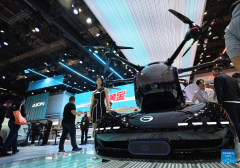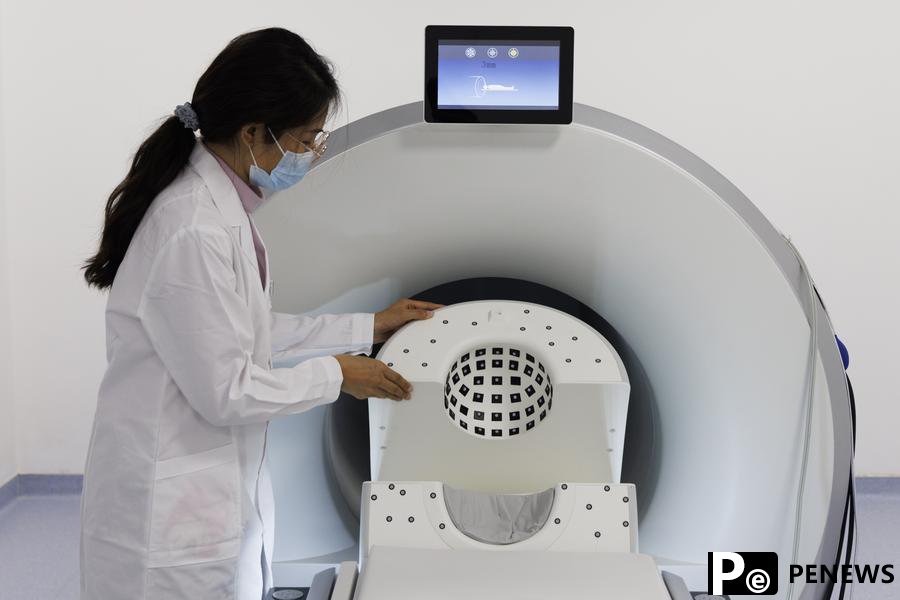Home>>
Auto Shanghai 2025 mirrors global automakers' confidence in Chinese marketBy Liu Shi'an, Shen Wenmin (People's Daily) 15:08, April 28, 2025
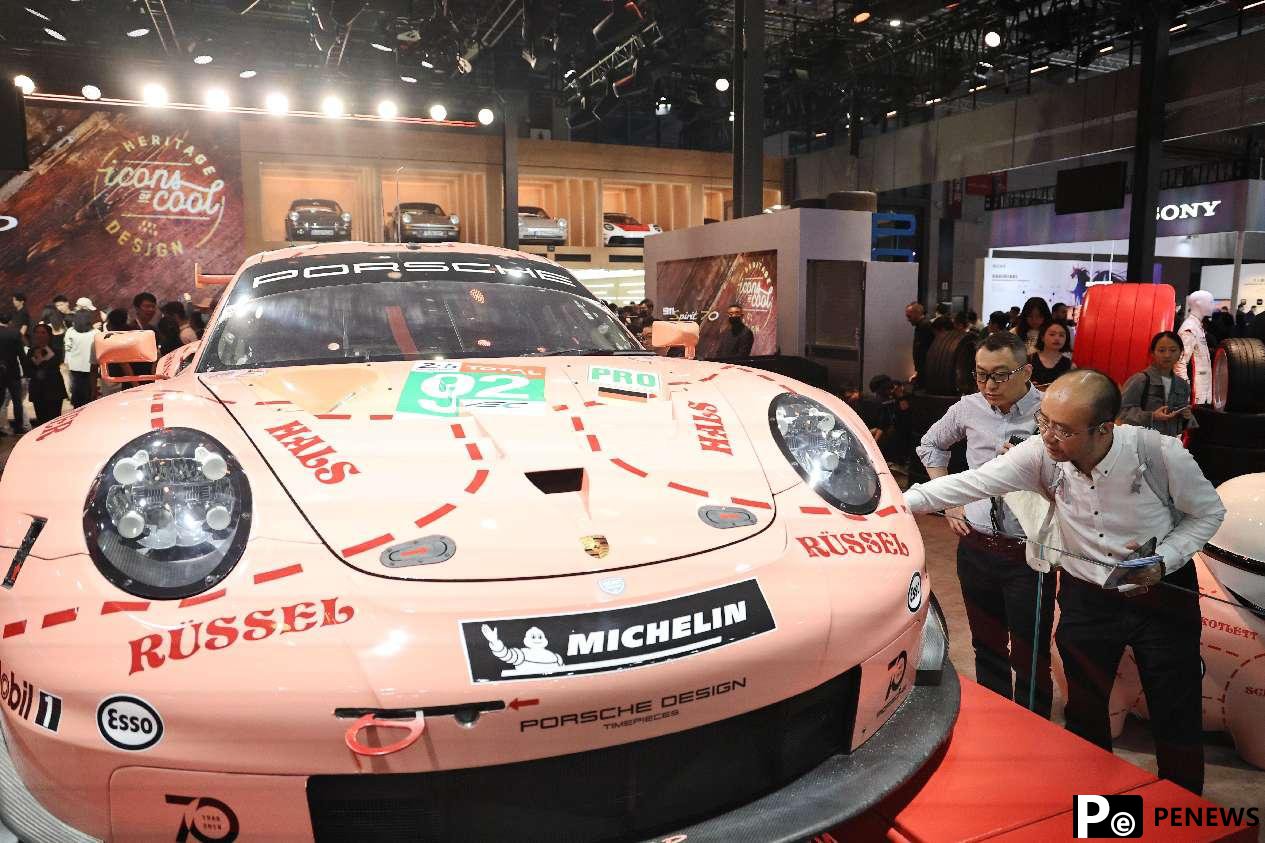
A vehicle is exhibited at the 21st Shanghai International Automobile Industry Exhibition, April 23. (Photo by Xu Peiqin/People's Daily Online)
On April 23, the 21st Shanghai International Automobile Industry Exhibition, also known as Auto Shanghai 2025, kicked off, showcasing over 100 new vehicles and cutting-edge technologies from nearly 1,000 companies across 26 countries and regions.
Despite the increasingly complex global trade environment, multinational carmakers and supply chain giants including BMW, Audi, Aptiv, and Continental, reinforced their commitment to the Chinese market by unveiling localized products and announcing major investment initiatives, sending a strong message of deep engagement and long-term confidence.
Auto Shanghai 2025 emerged as a key platform for global players to showcase their latest achievements in electrification and smart mobility solutions. Continental introduced an advanced driver assistance system tailored for the Chinese market, integrating locally optimized algorithms to address the complex driving scenarios in China. Aptiv debuted its Wind River real-time operating system and virtualization platform - developed by its China-based team - which serve as a reliable digital foundation for smart vehicles.
Meanwhile, global automakers are making real investments in the Chinese market. Aptiv announced that its new connector plant in Wuhan and automation facility in Shanghai will begin operations later this year, further strengthening its localized supply chain capabilities. Volkswagen strengthened its partnership with Chinese tech firm Horizon Robotics by establishing a joint venture to develop L2++ driver assistance systems specifically for China.
The sustained enthusiasm of foreign companies for Auto Shanghai, and their increased investment in China reflect unique strengths of the Chinese market. China has maintained its position as the world's largest auto maker and seller for 16 consecutive years. New energy vehicles (NEVs) now account for over 40% of all new car sales in the country, and consumers have shown strong demand for smart, connected features.
China's rapid development in NEVs and intelligent connected vehicles, combined with a complete industrial ecosystem, a robust talent pool, and an active innovation environment, continues to draw in global partners for joint R&D and innovation.
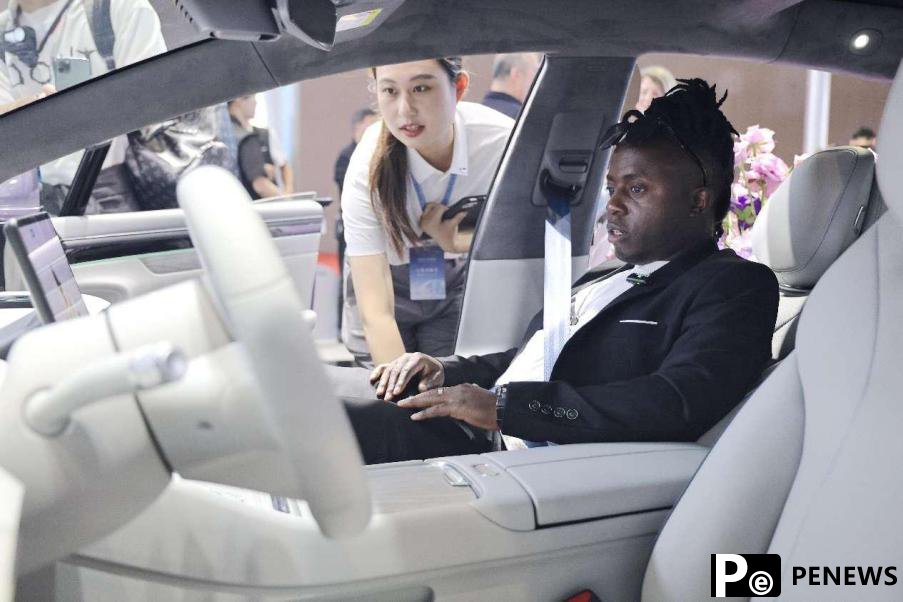
A foreign visitor experiences a vehicle exhibited at the 21st Shanghai International Automobile Industry Exhibition, April 23. (Photo by Xu Peiqin/People's Daily Online)
According to Gu Chunting, vice chairman of the Council for the Promotion of International Trade Shanghai, the Auto Shanghai has become a vital barometer of global automotive development. The strong engagement of foreign companies reflects the enormous appeal of the Chinese market and will help further integrate China's automotive industry into the global landscape.
Fu Bingfeng, executive vice president of the China Association of Automobile Manufacturers, noted that collaboration between global and domestic firms will accelerate technological innovation and industrial upgrading, pushing the global industry toward a smarter, greener future.
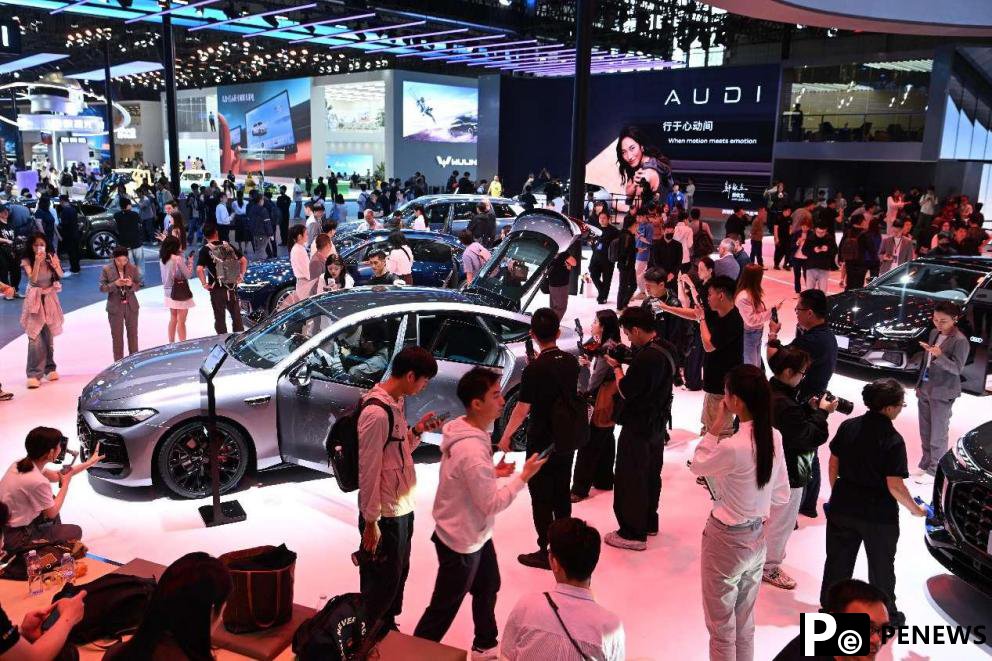
Photo taken on April 23 shows the booth of German carmaker Audi at the 21st Shanghai International Automobile Industry Exhibition. (Photo by Ji Haixin /People's Daily Online)
"China serves not only as the world's largest single auto market, but also a major hub of innovation," said Simon Yang, president of Aptiv for China and the Asia Pacific region. He added that the company is working to strengthen its localized supply chain capabilities while supporting Chinese automakers in expanding abroad.
A Volkswagen executive echoed this perspective: "China is leading the transformation toward intelligent vehicles. Our R&D, manufacturing, and ecosystem strategies must evolve in step with China."
Auto Shanghai 2025 delivered a clear message: international automakers are reshaping their approach to China through a strategy of "comprehensive localization." Shifting from merely exporting technology, they are collaborating with Chinese partners to co-develop the standards for next-generation intelligent vehicles.
This two-way engagement is not only helping China's automotive industry move up the global value chain but also unlocking new avenues for growth for multinational firms. Gong Min, head of automotive research at UBS China noted, "The scale and innovation momentum of the Chinese market will be a decisive factor in determining the global competitiveness of automakers in the coming decade."

